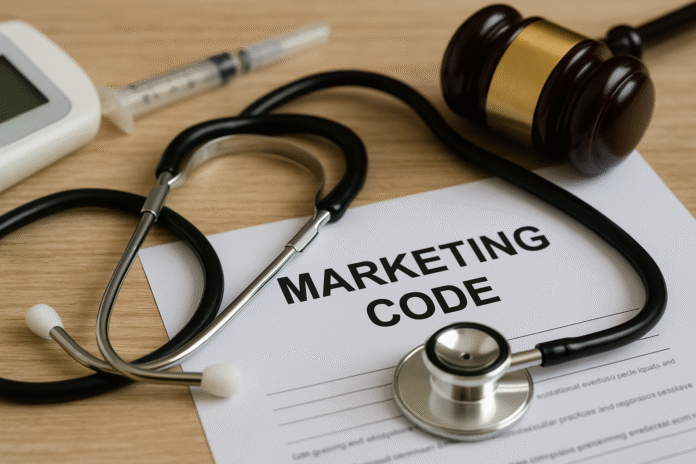In a move aimed at ensuring transparency and ethical practices in the rapidly growing medical devices sector, the Indian government has initiated a series of discussions with industry stakeholders to frame a comprehensive marketing code for medical devices. This step mirrors existing guidelines in the pharmaceutical sector and is expected to bring in greater accountability and professionalism.
Background: Need for Regulation
The medical devices industry in India, which includes products ranging from surgical instruments to high-end diagnostic machines, has grown exponentially over the past decade. With increasing commercialization, concerns have emerged over unethical marketing practices, such as incentivizing doctors to prescribe or recommend specific brands without scientific backing. These practices not only raise ethical questions but also pose risks to patient safety and trust.
Stakeholder Consultation Underway
The Department of Pharmaceuticals (DoP), under the Ministry of Chemicals and Fertilizers, has reportedly begun consultations with industry bodies such as the Association of Indian Medical Device Industry (AiMeD), multinational players, healthcare professionals, and regulatory experts. The objective is to develop a Medical Device Marketing Code (MDMC) that clearly outlines permissible and non-permissible promotional practices.
Voluntary or Mandatory?
A key point of debate is whether the marketing code should be voluntary or legally binding. While the current Uniform Code of Pharmaceutical Marketing Practices (UCPMP) is voluntary, there have been calls to make such codes mandatory to ensure better compliance. Several officials and experts suggest that a mandatory framework for medical devices is essential due to the sensitive nature of the products and their direct impact on patient health.
Key Issues Discussed
Some of the primary issues discussed in the meetings include:
- Gift-giving and Sponsorships: Clarifying what types of gifts or sponsorships to doctors and hospitals are acceptable.
- Educational Programs: Regulation of industry-sponsored educational events, conferences, and workshops.
- Transparency in Pricing: Ensuring hospitals disclose device costs to patients clearly.
- Third-party Marketing: Preventing misuse of intermediaries to influence procurement decisions.
- Digital Marketing Norms: Addressing the growing use of social media and digital platforms for promotion.
Industry Response
The industry has largely welcomed the initiative but emphasized the need for practical and globally harmonized guidelines. According to some industry representatives, a well-structured marketing code could help distinguish ethical manufacturers from fly-by-night operators, boosting both local innovation and exports.
AiMeD has also called for differentiated regulations for indigenous small-scale manufacturers versus large multinationals to avoid burdening startups with complex compliance processes.
What Lies Ahead?
The outcome of the ongoing consultations will determine the future direction of the MDMC. Once finalized, the code may be rolled out in phases with a possible grace period for compliance. Monitoring mechanisms, penalties for violations, and a redressal mechanism may also be included to strengthen enforcement.
Conclusion
The government’s efforts to initiate a dialogue on the Medical Device Marketing Code marks a significant step toward ethical, transparent, and patient-centric growth of the healthcare sector. As India aspires to become a global hub for medical device manufacturing, aligning industry practices with international norms will be crucial in building credibility and trust.



